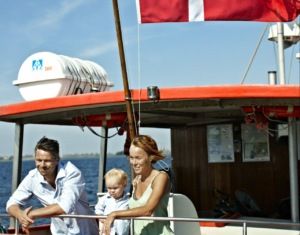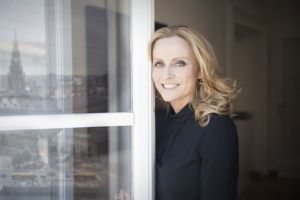Opinion
The Road Less Taken: How Danes are sociable, not socialist
Jessica Alexander
This article is more than 4 years old.

Nothing socialist about this lot! (photo: VisitDenmark/Niclas Jessen)
While America adjusts to the new era of a Biden presidency, one often accuses the Democratic Party of being too ‘socialist’. This generally conjures up negative imagery and the slow destruction of the American dream.
Denmark, typically touted as a ‘socialist’ country, has been voted as one of the happiest places in the world for over 40 years in a row.
Considering the pursuit of happiness is written into the American Declaration of Independence, it begs to question: what is it about that word we are so afraid of?
If we looked at Danes, for example, not as socialists but as ‘sociable’, is there anything new we might see behind the label?
Here are four little known facts about how Danes are sociable – not socialist.
Danes are very empathetic: They teach empathy to children. It starts in pre-school, continuing up to the age of 16, and is seen as just as important as teaching Maths or English. Empathy is a key factor in happiness. It connects us to others, works on the same neural pathways as forgiveness, and is a skill that can be both learned and taught. In America, studies show that empathy levels have dropped 50 percent since the 1980s and 90s, while narcissism has increased twofold.
Danes love to play: ’Leg godt’, which means ‘play well’, are the words behind the famous Danish brand Lego. Danes are big believers in the importance of unstructured play, as it has been proven to reduce anxiety while improving self-control, negotiation skills and social skills. Free play helps kids feel more in control of their lives and improves well-being.
Danes don’t spank: Spanking has been illegal in Denmark for over 20 years. For most Danes, spanking is an unthinkable way of educating children. The belief is that if you teach respect and act respectfully, then you will be respected. Perhaps it’s no surprise that Denmark has also repeatedly been named one of the most peaceful and democratic countries in the world.
Danes value togetherness: The concept of hygge, which basically means to cosy around together, is a deep part of the Danish culture. Essentially it is drama-free time with family and friends. It is highly valued and everyone makes an effort to make it happen. It results in ‘we time’ not ‘me time’, and this takes a little effort. Danes work together to enjoy the moment and the company, rather than fighting, competing or complaining. Feeling connected to others brings meaning and purpose to all of our lives and has an incredibly positive effect on our health and well-being.
So if we got rid of the label ‘socialist’ and replaced it with ‘sociable’, would the concept be more welcome in the heart of America? If we raised our children with more empathy, eliminated physical punishment, and learned to value hygge – while giving up the ‘me’ for the ‘we’, what difference could this make?
Democrat or Republican, looking at the happiness results year after year, it’s hard not to see that being a little more ‘sociable’ isn’t that bad.

About
Jessica Alexander
Jessica is a bestselling US author, Danish parenting expert, columnist, speaker and cultural researcher. Her work has been featured in TIME, The Huffington Post, The Atlantic and The NY Times, among others. She graduated with a BS in psychology and speaks four languages. Follow Jessica on IG @jessicajoelle_ or jessicajoellealexander.com.










































